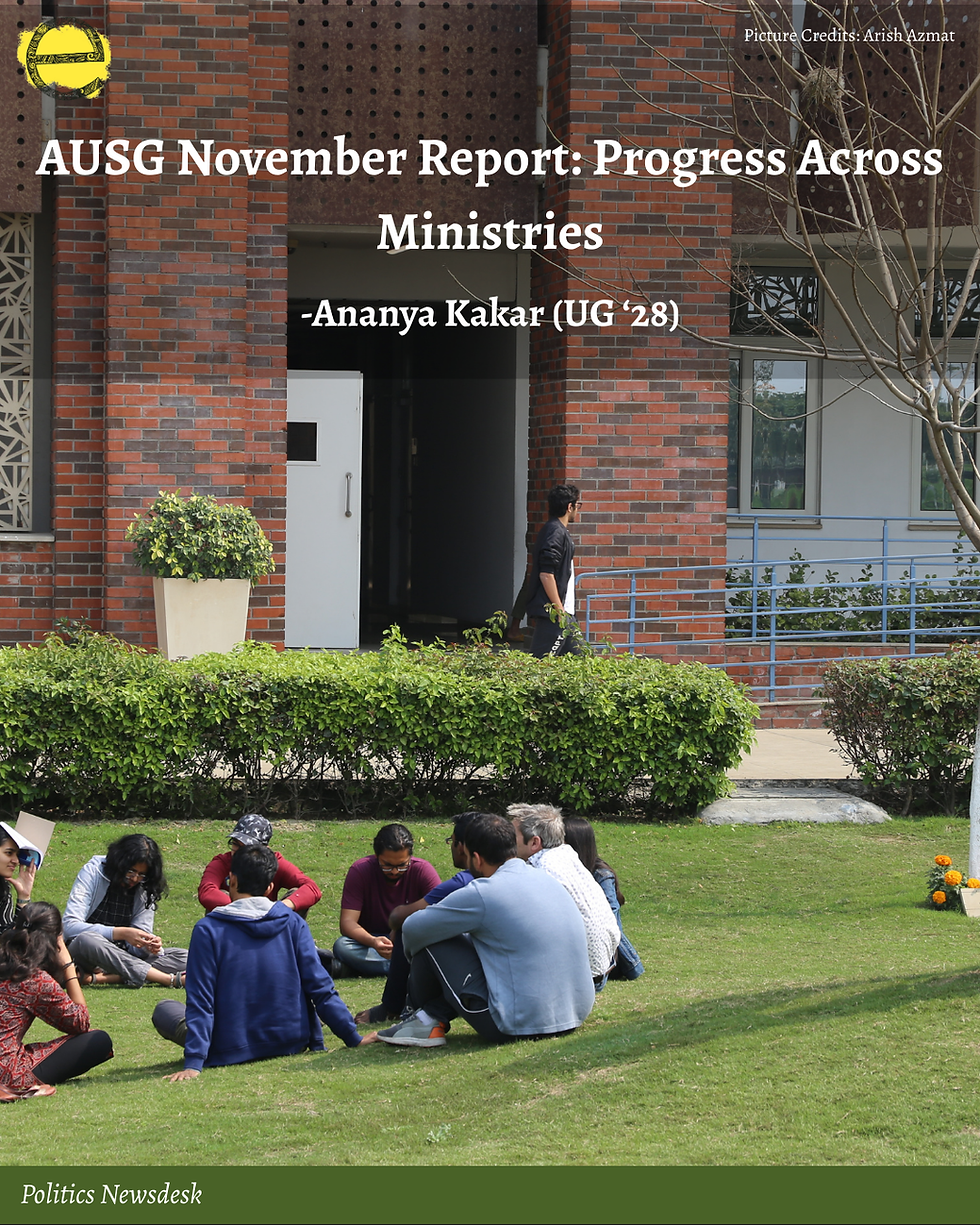What brews beneath the waves: A dive into Leher’s petition to the VC
- The Edict
- Aug 12, 2022
- 3 min read
Updated: Aug 28, 2022
By Newsdesk Staff
Leher, Ashoka’s newest political party, sent a petition on 1st August to Vice Chancellor Malabika Sarkar demanding reimbursement for the financial losses incurred by the student body on account of the unprecedented delay of the Monsoon semester. The petition has garnered just under 100 responses, at 94 signatories, as of 11th August.
The party underlines the admin’s delay in communicating the UGC guidelines dated 14th July that mandated the shift in the academic calendar. Their petition stems from the results of a survey rolled out on 30th July following a story on the party’s Instagram seeking the same information. Leher claims that data from the survey points to around 2 Lakh rupees in financial damages to 40 of its respondents.
The party released a second form for Ashoka’s incoming batch to gauge their grievances, the responses to which have not been made public.*
Was the petition effective?
In their email to the administration, the party demands that the admin either “reimburses the student suffering monetary losses due to this abrupt shift in the academic cycle or provide accommodations for their stay.” The party also demands transparency in the “decision making process” of the admin and its communication to the student body.
The petition is grounded in a survey that was open for 2 days and closed by Leher at a sample size of 58 individuals.
While the demands appear reasonable, they do not elaborate on any specific frameworks or solutions that the admin could undertake. Further, the petition has not received any response or action from the admin. In the past, the admin has similarly delayed or shifted a semester online in short notice; Leher’s approach thus raises the question of their expected response and commitment from the admin’s end.
Assessing Leher’s chosen strategy
The petition was Leher’s first public communication with the admin as a party.
Leher as a party has direct presence in the Student Government (SG); the party has members in the House as well as in the Academic and Parliamentary Ministries.
In this context, the party’s public action raises questions as to whether their direct channels of communication (via the House and the Cabinet) were utilised to take up student grievances with the admin in addition to the verbose but ultimately futile petition. The SG served as the Point of Contact between the admin and student body throughout the admin’s inadequate communication about the semester delay. Whether it was quickly restructuring the entire Cohort Leadership programme by conducting a new round of inductions or unofficially explaining the UGC guidelines and other reasons and shifts to the student body, the SG acted quickly after the decision of the shift was made.
Despite any communication that Leher members may (or may not) have had with the admin directly about the demand for reimbursements or accommodations, did the party believe the petition would be successful in swaying the admin, or was this action made with the aim of establishing its presence and an attempt to shift the student body’s decreasing faith in Ashoka’s political party system?
The admin’s lack of response or acknowledgement raises more concerns about the waning relevance of the student body’s political bodies and representatives in the admin’s eyes.
Leher’s approach to addressing this issue may also be seen as an indication of how it may work as the dominant party in a fully-functioning SG. Presently, its approach has been more admin-facing, with minimal involvement of students except in the signing of the petition. Would a Leher-led SG thus see student mobilisation primarily as acts of public protest or also for more proactive stances which utilise SG and student body resources?
Leher’s approach stands in contrast to another student mobilisation effort by the Democracy Collective (DemCol). On 7th August, DemCol mailed a spreadsheet to the student body, seeking to link students based in Delhi-NCR willing to provide accommodation to those who require it on an urgent basis. As of 11th August, the spreadsheet has received no sign-ups.
*Edit made on 28 August due to misrepresentation of facts. The original statement published was: "The party released a second form for Ashoka’s incoming batch to gauge their grievances; this survey did not receive any responses."







Comments